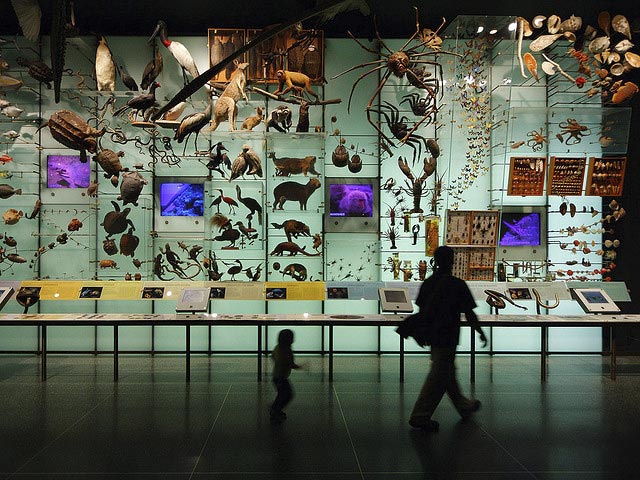
Could you survive with just half of your organs?
Think about it.
What if you had just half your brain, one kidney, half of your heart, one lung, half a liver and only half of your skin?
It would be pretty hard to survive right?
Sure, you could survive losing just one kidney or half of your liver, but at some point, losing pieces from all of your organs would be too much and you would die.
Well, this is exactly what’s happening to the web of life on planet Earth right now.
Like the human body, our planet is a living organism, and like the organs in the body, all of our planet’s species are interconnected. They form the web of life.
And, just like the human body can survive with just one kidney or one eye, our planet and the web of life can survive without a few species here and there.
But, like with the loss of organs in the body, there’s eventually a point at which the biological systems of planet Earth that support human life will just stop functioning if it loses too many species and thus too badly frays the web of life.
And that point could be coming a lot sooner than most people thought.
According to a new report from the World Wildlife Fund, a staggering 52 percent of the world’s mammals, reptiles, birds, fish and amphibians disappeared between 1970 and 2010.
We’re not talking about just a few species here and there. After all, species extinctions are normal. They’re part of the web of life, too.
But, losing 52 percent of mammals, birds, reptiles and amphibians in just 40 years is not normal.
It’s a sign of the devastating toll that human activity is having on our planet and its many ecosystems.
And, that 52 percent statistic doesn’t paint the full picture of what’s really going on here, because every time a species dies off, the web of life unravels just a little more and loses more of its balance.
For example, coyotes and hawks help keep the rabbit population in check. But what if these predators disappeared?
Rabbit populations would skyrocket, and that growth would strip the earth bare of green things.
Another great example of balance and interconnectedness in the web of life was laid out by famed biologist Stuart Pimm.
Pimm once told a story about how forests in the Pacific Northwest were lacking iodide in their soil, a chemical that’s necessary to keep the trees of those forests alive.
Suddenly the forests began to come back, as more and more iodide was being discovered in the forest soil. What had happened?
No one could figure out why this was happening, until a connection was made with none other than bear poop.
Basically, some of the dams on the rivers had been torn out, so the bears in the woods were eating the salmon from nearby rivers. Fish are great sources of iodide, as they absorb it from the ocean.
The iodide was then transferred from the bears to the forests via bear poop, which helped to fertilize the forests and promote growth.
This is the kind of interconnectedness that drives our planet and the web of life.
But, as more and more species continue to die off, our planet is losing this interconnectedness and balance, and the web of life is becoming badly unraveled.
Fortunately, there’s still time for us to prevent a complete disaster.
As the World Wildlife Fund report points out, 7.1 percent of the species losses between 1970 and 2010 were because of climate change.
And as climate change continues to rear its ugly head, our planet will lose more and more species.
So, if we want to save our planet and take the web of life off life support, now is the time to get serious about fighting back against the greatest threat our planet and the human race have ever faced. If we put a price on carbon, it will help save an ecosystem that can support human life. Check out Green World Rising for more information.
Our most important fundraising appeal of the year
December is the most critical time of year for Truthout, because our nonprofit news is funded almost entirely by individual donations from readers like you. So before you navigate away, we ask that you take just a second to support Truthout with a tax-deductible donation.
This year is a little different. We are up against a far-reaching, wide-scale attack on press freedom coming from the Trump administration. 2025 was a year of frightening censorship, news industry corporate consolidation, and worsening financial conditions for progressive nonprofits across the board.
We can only resist Trump’s agenda by cultivating a strong base of support. The right-wing mediasphere is funded comfortably by billionaire owners and venture capitalist philanthropists. At Truthout, we have you.
We’ve set an ambitious target for our year-end campaign — a goal of $125,000 to keep up our fight against authoritarianism in 2026. Please take a meaningful action in this fight: make a one-time or monthly donation to Truthout before December 31. If you have the means, please dig deep.